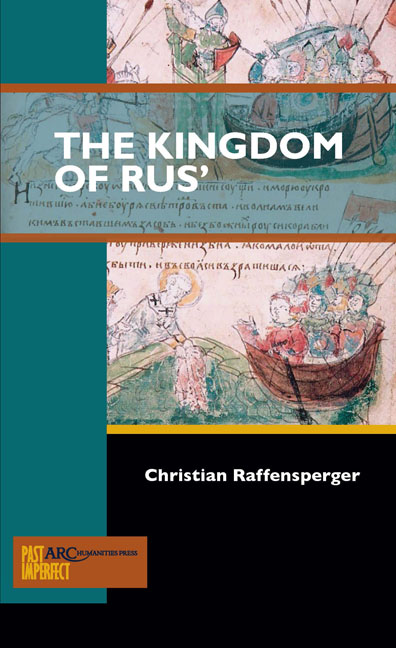Book contents
- Frontmatter
- Dedication
- Contents
- Acknowledgements
- Timeline of Events
- Introduction: The Problem with Names
- Chapter 1 The Place of Rus’ in Europe
- Chapter 2 The Historiography of the Translation of Kniaz’
- Chapter 3 Titulature and Medieval Rulers
- Chapter 4 What Was a Kniaz’?
- Chapter 5 Medieval Titulature and Rus’
- Chapter 6 Titles for Other Medieval Rulers in Rusian Sources
- Conclusion: Consequences and Resolution
- Further Reading
Chapter 5 - Medieval Titulature and Rus’
Published online by Cambridge University Press: 14 January 2021
- Frontmatter
- Dedication
- Contents
- Acknowledgements
- Timeline of Events
- Introduction: The Problem with Names
- Chapter 1 The Place of Rus’ in Europe
- Chapter 2 The Historiography of the Translation of Kniaz’
- Chapter 3 Titulature and Medieval Rulers
- Chapter 4 What Was a Kniaz’?
- Chapter 5 Medieval Titulature and Rus’
- Chapter 6 Titles for Other Medieval Rulers in Rusian Sources
- Conclusion: Consequences and Resolution
- Further Reading
Summary
Rus’ was, in the eleventh and twelfth centuries, part and parcel of the larger medieval European world. Conceptualizing it this way is an asset when attempting to comprehend the nature of a kniaz’. A comparison can then be made of medieval sources from different languages and kingdoms that were roughly contemporary with the period under investigation. This framework will allow us to better understand what a kniaz’ was, and what the proper meaning, and translation, of the title should be. In this chapter, sources from around the Latin-writing world, Scandinavia, Byzantium, Rus’, and even an example from Middle Low German will be examined to see how contemporaries referred to the rulers of Rus’, in an attempt to find the most accurate way of understanding, and replicating, medieval titulature.
Latin Sources (and one Middle Low German Source)
Rus’ appears throughout Latin chronicles, in both large and small mentions, and the ruler of Rus’ is almost uniformly referred to as “rex.” In chronicles from the German Empire, Lambert of Hersefeld under the year 1075 refers to a “Ruzenorum Rex,” while the Annales Augustani refer to the daughter of the ruler as, “Rutenorum regis filiam.” In a series of more substantial mentions from a directly contemporaneous source, Thietmar of Merseburg refers to the ruler of Rus’ consistently as “rex” throughout his text, even while disapproving of Volodimer as a “fornicatur immensus.” Annalista Saxo changes what is ruled from people to territory to call the ruler, “regi de Ruzia.” One of the rare Latin sources that does not refer to the ruler of Rus’ as a “rex” is the work of Bruno of Querfurt; he actually journeyed to Rus’ in the early eleventh century, motivated by the proselytizing passion of Otto III. Bruno, who met Volodimer and considered him a good Christian, referred to him simply as “senior Ruzorum.” What reason there might be for this difference in title is difficult to judge, but Bruno was ecumenical in his use of the title “senior,” using it for Bolesław of Poland, the ruler of the Swedes, as well as Otto III's successor Henry II (d. 1024). Bruno's focus was on Christianization of the pagans, not titulature, and so referring to the rulers he encountered or dealt with as “leader” (or “sovereign” as Soloviev translates it, p. 150) seems to be an acceptable shorthand to let him proceed on his way.
- Type
- Chapter
- Information
- The Kingdom of Rus’ , pp. 55 - 70Publisher: Amsterdam University PressPrint publication year: 2017



